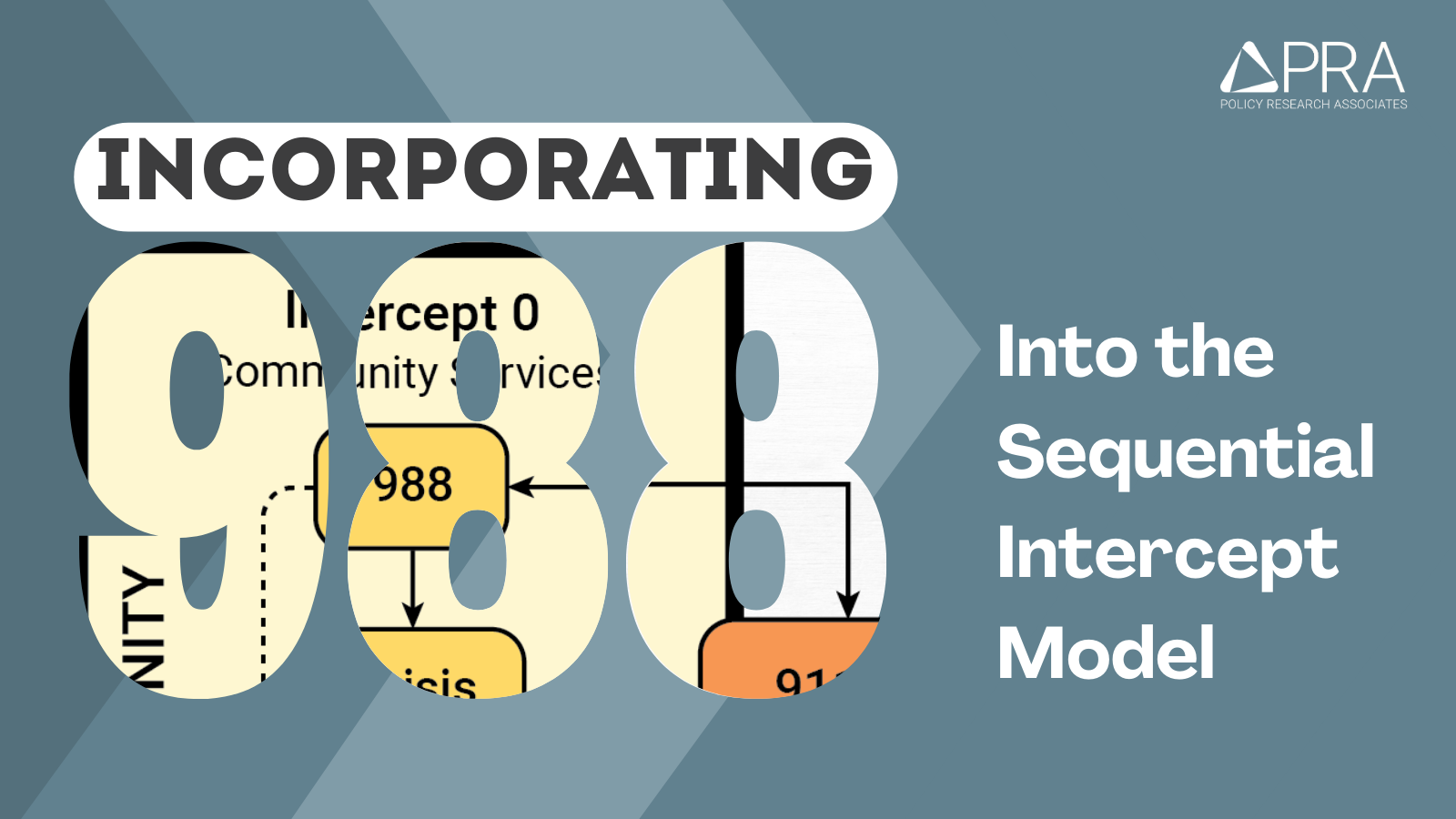Recognizing the groundbreaking impact and future potential of the national 988 Suicide and Crisis Lifeline, Policy Research has released a revised edition of the Sequential Intercept Model (SIM). The SIM now incorporates 988 in Intercept 0—read on to learn why, and what this means for the future of deflection from criminal legal system involvement for people with behavioral health conditions.
What is Intercept 0?
Intercept 0 is a vital component of the SIM that focuses on early intervention for individuals with mental health conditions and substance use disorders before they become involved in the criminal legal system. This stage aims to prevent individuals from entering the criminal legal system by providing timely support and resources. Early intervention at Intercept 0 can significantly reduce the likelihood of criminal legal system involvement, offering a proactive approach to behavioral health crises.
What is the 988 Suicide and Crisis Lifeline?
The 988 Suicide and Crisis Lifeline is a national system designed to connect individuals in crisis with immediate support and local resources. Launched in 2022, 988 provides an easy-to-remember number for people experiencing behavioral health emergencies. By integrating 988 into their Intercept 0 systems, communities can offer a streamlined and accessible entry point for crisis intervention, facilitating early deflection and support before law enforcement becomes involved.
How are communities integrating 988 into their crisis response systems at Intercept 0?
Across the country, states, counties, and cities are developing innovative solutions that leverage 988 to enhance their Intercept 0 strategies. These solutions include:
How does 988 support improved outcomes for individuals and communities at Intercept 0?
Integration of 988 into local crisis response systems can provide significant benefits across various sectors:
Where does 988’s integration into Intercept 0 go from here?
The future of integrating 988 into Intercept 0 looks promising as more communities recognize the value of early intervention and deflection from potential legal system involvement. Continued investment in crisis response infrastructure, training, and public awareness will be crucial in ensuring that 988 becomes a cornerstone of effective behavioral health crisis intervention. As this integration progresses, it holds the potential to transform how communities respond to behavioral health crises, fostering a more compassionate, efficient, and effective system for everyone.


